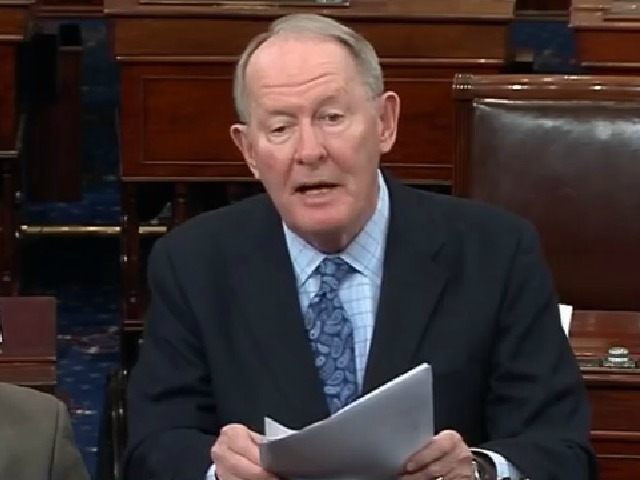Sen. Lamar Alexander says he hopes the Senate will pass even more “bipartisan” legislation like the Every Student Succeeds Act (ESSA) that is poised to replace the federal No Child Left Behind (NCLB) law.
The Senate voted to advance the legislation, 84-12, with four senators not voting.
The 12 senators who voted against the move to advance the bill were: Blunt (R-MO), Crapo (R-ID), Cruz (R-TX), Daines (R-MT), Lee (R-UT), Moran (R-KS), Paul (R-KY), Risch (R-ID), Sasse (R-NE), Scott (R-SC), Shelby (R-AL), and Vitter (R-LA).
Senators who did not vote were: Coats (R-IN), Graham (R-SC), Rubio (R-FL), and Sanders (I-VT).
The final vote on the bill is expected Wednesday. President Obama has said he will sign the legislation into law.
Alexander, who chairs the Senate committee that oversees education, and ranking member Sen. Patty Murray, congratulated each other numerous times on the floor of the Senate for completing the 1,061-page “bipartisan” conference legislation, much of which was apparently crafted behind closed doors and passed by the House last week after having been published for review only two days earlier.
In his floor speech, Alexander said the advice he took from Murray helped to get the legislation moving forward rather than stalled due to partisan views. He said as long as senators get to offer amendments, they’ve had their say and then can vote.
“Someone asked me earlier today or yesterday what would it take to have the American people have a higher opinion of the United States Congress,” Alexander said. “My answer is actions like this.”
While Alexander touts the bill eliminates the federal government’s ability to coerce states into using the Common Core standards, conservatives say the legislation actually cements the standards further.
“ESSA requires each state to submit a state plan for approval,” Jane Robbins, senior fellow at the American Principles Project tells Breitbart News.
She explains:
The state plan (which includes the state standards) must be coordinated with 11 different federal statutes. These include the Soviet-style Workforce Innovation and Opportunity Act that’s designed to connect the K-12 education system to government-controlled workforce-development, the Head Start act that centralizes preschool standards, the Education Sciences Reform Act (which seeks to boost data-collection on students), etc. If the state standards must be coordinated to all these, that means the standards must be either Common Core or something like Common Core – standards that are focused on minimal workforce-development rather than academic knowledge. Standards based on a classical education model, for example, wouldn’t qualify. Given these requirements, states will almost certainly stick with Common Core rather than risk their federal money by trying something else.
Robbins says ESSA also requires that the standards chosen must be aligned to the requirements of higher education.
“There’s obviously a huge disparity between the requirements of a community college and, say, Harvard,” she continues. “So since ESSA also requires that ALL students be held to these standards (with the exception of those with the most severe cognitive disabilities), states will obviously choose the community-college standards. Guess what standards are already out there that are (admittedly) designed to prepare students only for community college? Common Core.”
“The bottom line is that all these statutory requirements work together to force states into the Common Core mold,” Robbins says. “The Secretary of Education won’t be able to say, ‘You must use Common Core,’ but he won’t have to. The statute does it for him.”
In October, a national coalition of parents sent a letter to House and Senate education committee leaders urging them to suspend their talks on the NCLB reauthorization until a new administration is elected. Alexander, however, was adamant about “fixing” NCLB.
“We’ll get right together with [House education] Chairman [John] Kline, and I’m in favor of moving pretty rapidly,” Alexander said about conference negotiations once the Senate’s version of the reauthorization bill passed. “I’d like to work with the House and come up with something that the president can sign pretty quickly. We want a result, and under our constitutional system that takes a presidential signature, and… we’ve stayed in touch with him.”

COMMENTS
Please let us know if you're having issues with commenting.